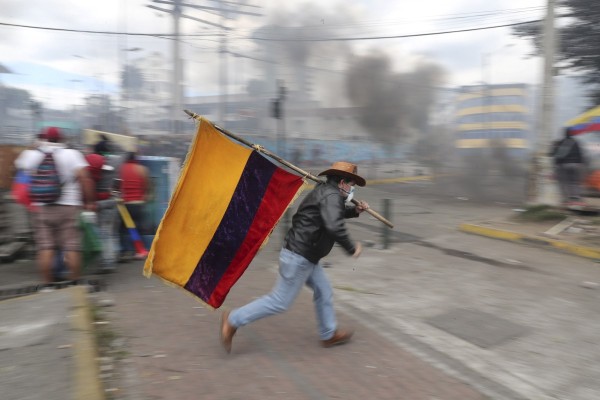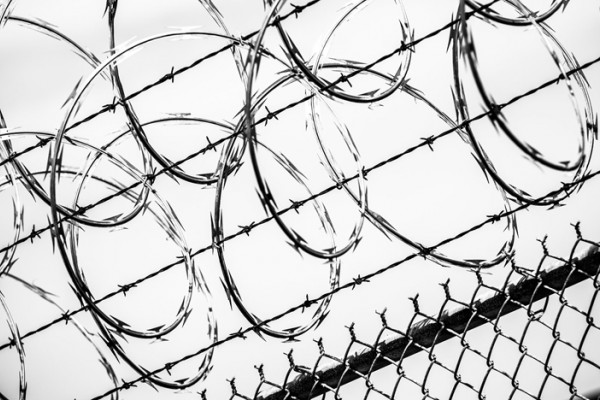-

Feds must act to end the forced sterilization of Indigenous people
Between 2015 and 2019, over 100 Indigenous women from Alberta, British Columbia, Manitoba, the Northwest Territories, Nova Scotia, Nunavut, Ontario, and Québec publicly asserted that they were survivors of forced or coerced sterilization procedures. The actual number is undoubtedly much higher, and more and more Indigenous women come forward every year to share their traumatic experiences.
-

Why a planned frac sand mine spells trouble for Manitoba First Nations and the environment
The mining of silica sand on a community-designated trapline adjacent to the Hollow Water First Nation’s reserve boundary in Manitoba is poised to be a disaster for the environment. But this can all be avoided if CPS gets the silica it needs to feed its proposed float glass plant from Wisconsin, instead of despoiling a sensitive ecosystem for profit and convenience.
-

AFN’s toxic politics hurts First Nations
No matter how you slice it, the AFN has created a monumental mess that, ironically, proves the very dysfunction many First Nations have been talking about for years. By effectively appointing itself as the judge, jury, and executioner of RoseAnne Archibald’s political career, the organization breached not only her basic human rights but also her basic legal rights to administrative and procedural fairness.
-

UN urges Canada to end criminalization of land defenders
On April 29, 2022, the United Nations Committee for the Elimination of Racial Discrimination (CERD) released a letter—their third in total—urging the Canadian government to respect the rights of the Indigenous Secwepemc and Wet’suwet’en communities resisting the construction of the Trans Mountain pipeline expansion and the Coastal GasLink pipeline in northern British Columbia.
-

Trudeau silent on police crackdown in Ecuador
While Ecuadorians rise up in protest of a mercilessly cruel economic system, the Trudeau government has stayed silent while the Canadian embassy degrades them as violent rioters. It should come as no surprise that the leader of a global mining superpower should react this way toward a protest movement demanding social and economic change within Latin America.
-

To address the incarceration of Indigenous women, dismantle the system
While only one in 20 women in Canada are Indigenous, Indigenous women make up half the female population in our federal prisons. Indigenous men are similarly hyper-incarcerated at 31.9 percent. To address this horrific reality, we need to defund and dismantle the penal system, as abolitionists have long made clear. Reforms alone simply won’t cut it, writes Abby Stadnyk.
-

RCMP’s toxic culture of sexualized violence requires external review
Canada cannot even begin the process of reconciliation until it addresses the ongoing genocide which includes sexualized violence towards Indigenous women and girls by the federal police. The question remains: will the federal government act urgently to ensure not another woman in Canada is violently raped or assaulted by the RCMP? That remains to be seen.
-

Fairy Creek: a tree planter’s account of the blockades
Instead of accepting an industry that acts in lockstep with other resource-based industries in Canada by destabilizing our environment and furthering a history of systemic racism at the whim of multinational corporations, we can organize as a workforce—empowering workers, advocating for scientifically grounded environmental planning, and fighting against a legacy of colonial violence towards Indigenous peoples.
-

Canada’s military buildup in the Arctic threatens climate and Indigenous peoples
The militarists’ narrative goes something like this: despite not facing any imminent conventional military threats to its Arctic, Canada must significantly bolster the defence of its northernmost borders, otherwise the Russians could cross more than a thousand kilometres of usually icy ocean to take ‘our’ land and resources. But whose land is it, anyway? And to whom do these resources belong?
-

Divesting from colonialism: a call for McGill University to respect Wet’suwet’en self-determination
Taking stock of the last 200 years means more than confessing one’s past wrongs; it involves dismantling ongoing colonial relationships, supporting the self-determination of Indigenous peoples, and paying reparations to enable racial, social, and environmental justice. It is in this spirit that climate justice activists are calling on McGill University to divest from TC Energy.



